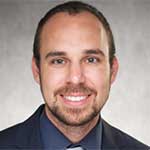Should I be out on my application?
Will I be denied an interview if I come out?
Are there any people like me I can talk to about their experiences here?
Like many of us, I’ve asked myself these questions during the many application cycles we endure. We put ourselves in the vulnerable position of being up for review by future bosses and colleagues with the simple desire to be liked, to impress. When I think about this process, I’m filled with a cognitive dissonance — I have no issue being out about my identity when not at work, but where does that nonapologetic gay identity go when I enter the professional sphere?
Although feeling self-conscious about being out at work is not a new concept, the idea of being out has recently garnered attention among medical specialty societies. As we navigate our careers, we all have experiences that make us think critically about how others perceive us and how we come off, and we look for mentors that mirror ourselves for guidance.
However, when I look around to find a member of my LGBT community to model the intersection of confidence, professionalism, and openness, I’m at a loss.
Our community has had to censor our personal lives to excel professionally, and the fallout continues to manifest. During the interview season, for example, I met only one other out applicant on the trail. I was shocked that more members of our community were not visible, and at each interview, I actively sought LGBT representatives at each place, often emailing the institution beforehand.
To my surprise, there were no recommendations. I left the interview trail feeling completely alone. Like many who are gay with no exposure to those like them, I wondered if I was the only gay ophthalmology applicant out there (or one of two, if you include my interview trail friend). How could this be the case?!
As an undergraduate, I remember feeling I wanted to talk to someone who had experiences similar to mine in the medical school application process. I sent out dozens of emails to a list of LGBT-friendly providers on the Gay and Lesbian Medical Association (GLMA) website, asking for recommendations for gay physician mentors. I was surprised to receive a few responses, and eventually I found my first (and only) LGBTQ physician mentor. What was even more striking, however, was how willing these individuals were to donate their time and emotional energy to helping a complete stranger with applications.
The eagerness of responses by these doctors to me more broadly is indicative of a desire to create a positive culture of mentorship. With a more accepting society, we are eager to provide something we lacked when being out at one time could permanently derail our careers.
At my residency program at the University of Iowa, I found a home where I could be myself and be unequivocally accepted by our faculty. Through one of our faculty members, I connected with a network of LGBT ophthalmologists, which resulted in the creation of an LGBTQ+ community on the Academy’s Online Community.
Our group is specifically geared towards LGBTQ+ members and allies, and thanks to Jane Aguirre, the Academy’s vice president of Membership and Alliances, and others’ tireless work, we are starting to build this community we have wanted for so long. We also created a landing page and a new LGBTQ contact email for all trainees who, like me, are looking for someone who can specifically understand the struggles related to our identity in this journey. And with special consideration to privacy given our community’s history, this group is designed such that those outside of the group are unable to view community member names.
I’m hopeful that with the start of this community, we’ll eventually create a formal mentorship program. We welcome all questions — we’ve all asked ourselves these same things at one point or another. We have a strong cohort of people interested in mentoring those early trainees (or later trainees, or even young faculty!), but we can’t continue to build resources without demonstrating we have a robust, active community. Let’s build a strong network that can help all the young trainees who feel invisible, just like we have.
 |
About the author: David Ramirez Jr., MD, will complete his ophthalmology residency in 2022 at the University of Iowa Hospitals and Clinics Department of Ophthalmology and Visual Sciences. He received his medical degree from the University of California, San Francisco. |